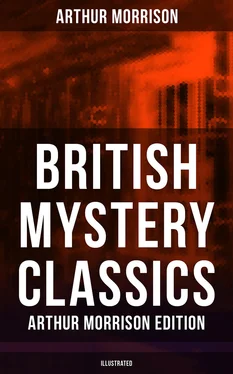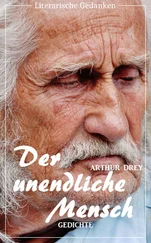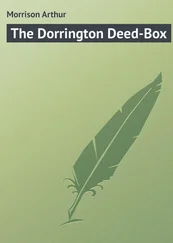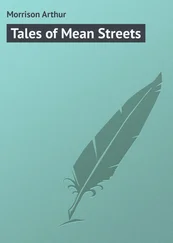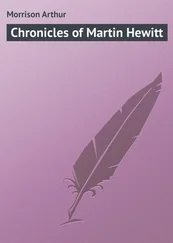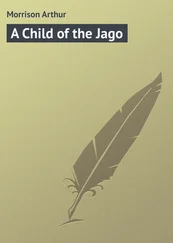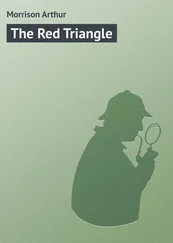“Certainly it is a considerable loss. Five thousand pounds—”
“Ah, but don’t misunderstand me! It isn’t the monetary value of the thing that I regret. As a matter of fact, I am indemnified for that already. Claridge has behaved most honorably—more than honorably. Indeed, the first intimation I had of the loss was a check from him for five thousand pounds, with a letter assuring me that the restoration to me of the amount I had paid was the least he could do to repair the result of what he called his unpardonable carelessness. Legally, I’m not sure that I could demand anything of him, unless I could prove very flagrant neglect indeed to guard against theft.”
“Then I take it, Lord Stanway,” Hewitt observed, “that you much prefer the cameo to the money?”
“Certainly. Else I should never have been willing to pay the money for the cameo. It was an enormous price—perhaps much above the market value, even for such a valuable thing—but I was particularly anxious that it should not go out of the country. Our public collections here are not so fortunate as they should be in the possession of the very finest examples of that class of work. In short, I had determined on the cameo, and, fortunately, happen to be able to carry out determinations of that sort without regarding an extra thousand pounds or so as an obstacle. So that, you see, what I want is not the value, but the thing itself. Indeed, I don’t think I can possibly keep the money Claridge has sent me; the affair is more his misfortune than his fault. But I shall say nothing about returning it for a little while; it may possibly have the effect of sharpening everybody in the search.”
“Just so. Do I understand that you would like me to look into the case independently, on your behalf?”
“Exactly. I want you, if you can, to approach the matter entirely from my point of view—your sole object being to find the cameo. Of course, if you happen on the thief as well, so much the better. Perhaps, after all, looking for the one is the same thing as looking for the other?”
“Not always; but usually it is, or course; even if they are not together, they certainly have been at one time, and to have one is a very long step toward having the other. Now, to begin with, is anybody suspected?”
“Well, the police are reserved, but I believe the fact is they’ve nothing to say. Claridge won’t admit that he suspects any one, though he believes that whoever it was must have watched him yesterday evening through the back window of his room, and must have seen him put the cameo away in his desk; because the thief would seem to have gone straight to the place. But I half fancy that, in his inner mind, he is inclined to suspect one of two people. You see, a robbery of this sort is different from others. That cameo would never be stolen, I imagine, with the view of its being sold—it is much too famous a thing; a man might as well walk about offering to sell the Tower of London. There are only a very few people who buy such things, and every one of them knows all about it. No dealer would touch it; he could never even show it, much less sell it, without being called to account. So that it really seems more likely that it has been taken by somebody who wishes to keep it for mere love of the thing—a collector, in fact—who would then have to keep it secretly at home, and never let a soul besides himself see it, living in the consciousness that at his death it must be found and this theft known; unless, indeed, an ordinary vulgar burglar has taken it without knowing its value.”
“That isn’t likely,” Hewitt replied. “An ordinary burglar, ignorant of its value, wouldn’t have gone straight to the cameo and have taken it in preference to many other things of more apparent worth, which must be lying near in such a place as Claridge’s.”
“True—I suppose he wouldn’t. Although the police seem to think that the breaking in is clearly the work of a regular criminal—from the jimmy-marks, you know, and so on.”
“Well, but what of the two people you think Mr. Claridge suspects?”
“Of course I can’t say that he does suspect them—I only fancied from his tone that it might be possible; he himself insists that he can’t, in justice, suspect anybody. One of these men is Hahn, the traveling agent who sold him the cameo. This man’s character does not appear to be absolutely irreproachable; no dealer trusts him very far. Of course Claridge doesn’t say what he paid him for the cameo; these dealers are very reticent about their profits, which I believe are as often something like five hundred per cent as not. But it seems Hahn bargained to have something extra, depending on the amount Claridge could sell the carving for. According to the appointment he should have turned up this morning, but he hasn’t been seen, and nobody seems to know exactly where he is.”
“Yes; and the other person?”
“Well, I scarcely like mentioning him, because he is certainly a gentleman, and I believe, in the ordinary way, quite incapable of anything in the least degree dishonorable; although, of course, they say a collector has no conscience in the matter of his own particular hobby, and certainly Mr. Wollett is as keen a collector as any man alive. He lives in chambers in the next turning past Claridge’s premises—can, in fact, look into Claridge’s back windows if he likes. He examined the cameo several times before I bought it, and made several high offers—appeared, in fact, very anxious indeed to get it. After I had bought it he made, I understand, some rather strong remarks about people like myself ‘spoiling the market’ by paying extravagant prices, and altogether cut up ‘crusty,’ as they say, at losing the specimen.” Lord Stanway paused a few seconds, and then went on: “I’m not sure that I ought to mention Mr. Woollett’s name for a moment in connection with such a matter; I am personally perfectly certain that he is as incapable of anything like theft as myself. But I am telling you all I know.”
“Precisely. I can’t know too much in a case like this. It can do no harm if I know all about fifty innocent people, and may save me from the risk of knowing nothing about the thief. Now, let me see: Mr. Wollett’s rooms, you say, are near Mr. Claridge’s place of business? Is there any means of communication between the roofs?”
“Yes, I am told that it is perfectly possible to get from one place to the other by walking along the leads.”
“Very good! Then, unless you can think of any other information that may help me, I think, Lord Stanway, I will go at once and look at the place.”
“Do, by all means. I think I’ll come back with you. Somehow, I don’t like to feel idle in the matter, though I suppose I can’t do much. As to more information, I don’t think there is any.”
“In regard to Mr. Claridge’s assistant, now: Do you know anything of him?”
“Only that he has always seemed a very civil and decent sort of man. Honest, I should say, or Claridge wouldn’t have kept him so many years—there are a good many valuable things about at Claridge’s. Besides, the man has keys of the place himself, and, even if he were a thief, he wouldn’t need to go breaking in through the roof.”
“So that,” said Hewitt, “we have, directly connected with this cameo, besides yourself, these people: Mr. Claridge, the dealer; Mr. Cutler, the assistant in Mr. Claridge’s business; Hahn, who sold the article to Claridge, and Mr. Woollett, who made bids for it. These are all?”
“All that I know of. Other gentlemen made bids, I believe, but I don’t know them.”
“Take these people in their order. Mr. Claridge is out of the question, as a dealer with a reputation to keep up would be, even if he hadn’t immediately sent you this five thousand pounds—more than the market value, I understand, of the cameo. The assistant is a reputable man, against whom nothing is known, who would never need to break in, and who must understand his business well enough to know that he could never attempt to sell the missing stone without instant detection. Hahn is a man of shady antecedents, probably clever enough to know as well as anybody how to dispose of such plunder—if it be possible to dispose of it at all; also, Hahn hasn’t been to Claridge’s to-day, although he had an appointment to take money. Lastly, Mr. Woollett is a gentleman of the most honorable record, but a perfectly rabid collector, who had made every effort to secure the cameo before you bought it; who, moreover, could have seen Mr. Claridge working in his back room, and who has perfectly easy access to Mr. Claridge’s roof. If we find it can’t be none of these, then we must look where circumstances indicate.”
Читать дальше
